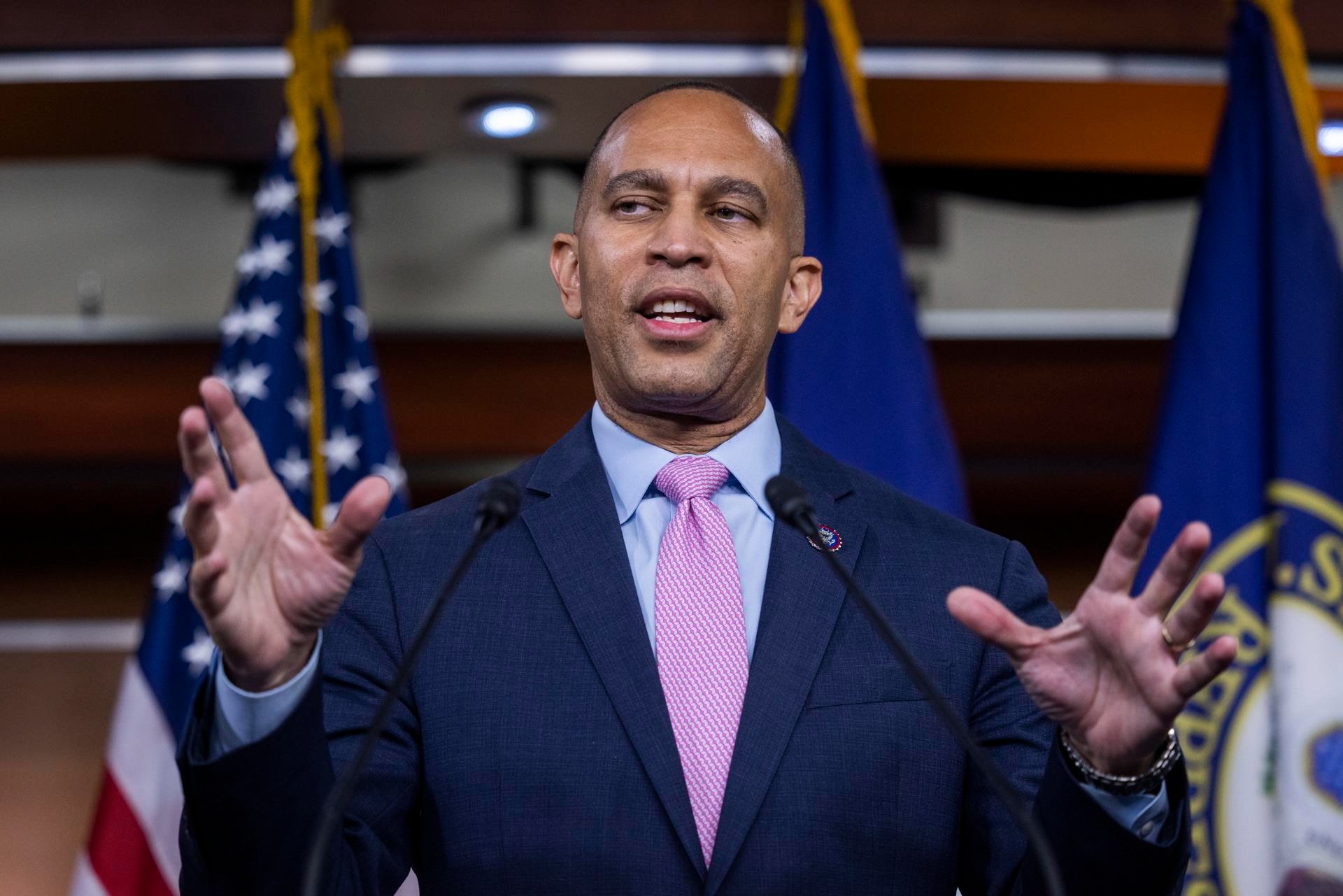During a recent White House meeting, House Minority Leader Hakeem Jeffries (D-NY) reportedly offered assistance from Democrats to Speaker Mike Johnson (R-LA) in passing a rule for the Senate-passed Ukraine aid bill.
Jeffries expressed willingness for Democrats to help in the Rules Committee and on the House floor to pass the rule necessary for the bill’s consideration.
However, according to a source familiar with the situation, Speaker Johnson ignored Jeffries’ offer, indicating a lack of receptiveness from the Republican leadership to the proposal.
Jeffries (Credits: KFOR)
The Senate-passed Ukraine aid bill has been a focal point of bipartisan efforts in response to the Russian invasion of Ukraine. The bill includes provisions for providing military and humanitarian aid to Ukraine, as well as imposing sanctions on Russia.
The offer from Jeffries to assist in passing the rule demonstrates a willingness from Democrats to work across the aisle on this important issue. By offering support in the Rules Committee and on the House floor, Democrats were signaling their commitment to advancing the Ukraine aid bill in a timely manner.
However, Speaker Johnson’s reported dismissal of Jeffries’ offer raises questions about the Republican leadership’s strategy regarding the Ukraine aid bill. With bipartisan support for the bill evident in the Senate, the reluctance of House Republicans to move forward with the legislation could be seen as a delay tactic or a lack of prioritization of the issue.
The situation highlights the challenges of bipartisan cooperation in a politically charged environment. While both parties may agree on the need to support Ukraine in the face of Russian aggression, the dynamics of congressional politics can complicate efforts to translate that consensus into legislative action.
The role of the Rules Committee in this process is crucial. As the committee responsible for determining the rules for debate and amendment of bills on the House floor, its support is essential for the Ukraine aid bill to advance.
Jeffries’ offer to assist in the committee demonstrates a willingness to engage constructively in the legislative process. The Ukraine aid bill is not just a matter of policy; it is also a test of Congress’s ability to respond effectively to a major international crisis.
The eyes of the world are on the United States and its ability to lead in this critical moment. The failure to pass the bill would not only impact Ukraine but also send a signal to Russia and other aggressors about the resolve of the international community.
In the coming days, it remains to be seen how the situation will unfold. Will Speaker Johnson reconsider his position and accept the offer of assistance from Democrats? Or will the Ukraine aid bill remain stalled in the House, risking further delays in providing crucial support to Ukraine?
The answers to these questions will determine not only the fate of the Ukraine aid bill but also the broader implications for U.S. foreign policy and congressional leadership. As the situation continues to evolve, one thing is clear: the need for bipartisan cooperation and decisive action has never been greater.
